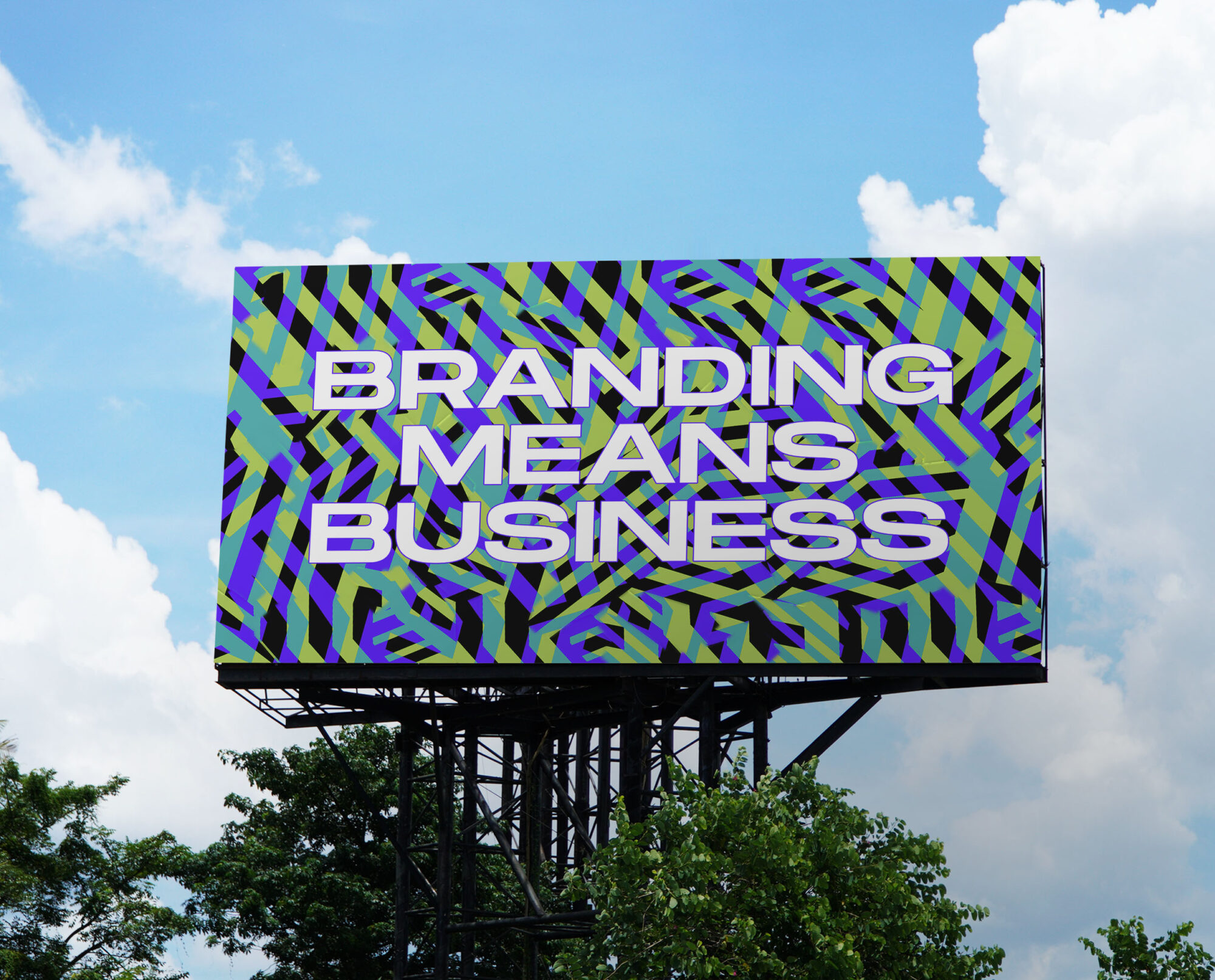
6.02.2025
Branding That Means Business: 5 Lessons Every Marketer Should Know
6 min read by Annabel Wood
In a world where attention spans are shrinking and competition is fierce, branding isn’t just about looking good – it’s about meaning something. The brands that win aren’t always the loudest; they’re the ones that connect, resonate, and stick. But what’s the secret behind that kind of impact?
In Branding That Means Business by Matt Johnson and Tessa Misiaszek, the authors unpack what truly drives brand loyalty in today’s market. We’ve distilled the book’s insights into 5 essential lessons every marketer should know – because brand meaning isn’t optional, it’s everything.
“Now, more than ever, your brand is either loved – or it’s noise.”
Published by The Economist, and written by Matt Johnson & Tessa Misiaszek, ‘Branding that Means Business’ tackles how brands can rise above the noise. As an award-winning branding agency, it’s our aim to help brands to do just this.
Here are our 5 key takeaways from the book:
- Brand meaning matters
- Beware the age of unbranding
- Why it’s just as important to ask what won’t change
- Get political
- Your consumer has a personal brand
1. Brand meaning matters
Does your product have the best USP? Have you invested loads of time and money into improving it? Great! But remember this: products can be copied, your brand (or rather, brand meaning) can’t. Why? Because brand meaning exists in the mind of the consumer; it’s the thoughts and feelings conjured when you think about a brand. One illustration of the importance of brand meaning is the Pepsi Challenge. In 1975, Pepsi launched a campaign involving a randomised, double-blind taste test experiment. The results showed that when tasters knew whether they were drinking Pepsi or Coca-Cola, a massive majority preferred Coke. However, when they didn’t know which brand they were drinking, taste-testers preferred Pepsi. Coca-Cola’s response? To improve their product. Following years of feedback and iteration, ‘New Coke’ was launched and after it outperformed Pepsi and Original Coke in taste tests, traditional Coke was withdrawn. This was met with huge backlash among diehard Coke fans. Across the U.S. protest groups sprang up, riots broke out, and 1,500 calls were made each day to Coke’s corporate lines, demanding the return of Original Coke. What went wrong? Coca-Cola grossly underestimated the value of its brand meaning.
2. Beware the age of unbranding
Talking of copying products, Amazon is notorious for doing this.
‘Amazon takes something like Allbirds shoes, strips the brand to the most functional product level, and then sells it better, faster and cheaper…’
Amazon will place these products under one of thirty plus internal ‘brands’ (Amazon Basics, 206 Collective etc.). But this is less a rebrand, and more an unbrand. Notice that we’re also seeing this in online shopping and fast-fashion. Forget seasonal fashion, ‘brands’ like Nasty Gal, Boohoo, Shein, ASOS and Pretty Little Thing can churn out thousands of new clothing items per week. Zara was once revolutionary for how quickly they could launch a new fashion line, but now the ultra-fast turnaround – driven by consumer demand and fashion trends that are gone as soon as they arrive – render any sense of ‘brand’ incoherent. The authors discuss how brand purpose can be leveraged to tackle these challenges.
3. Why it’s just as important to ask what won’t change
Jeff Bezos has said that he always gets asked one question: “What’s going to change in the next 10 years?” While everyone was caught up on predicting the next big thing, Bezos made a bet on what’s not going to change:
“It’s impossible to imagine a customer saying, I love Amazon but I wish they delivered slower.”
Bezos bet on our want for efficiency, and won. Today we are obsessed with predicting the future, and we like to think we’re pretty good at it. While there is enormous value in staying on top of emerging trends, one thing we know for certain is that not much is certain. Tomorrow’s news will turn today’s news on its head (with the recent U.S. TikTok “ban” being just one example of this). The fundamentals of human nature stay the same, so when considering brand strategy, why not bet on the constants?
4. Get political
Sharing nice photos and life updates with friends & family largely sums up the purpose that social media used to serve. But everything today is increasingly politicised, and that includes the consumer-brand relationship. Consumers expect brands to take a political position where it’s fitting to do so. This is harder for big brands because the larger your consumer base, the more heterogenous (or politically diverse) it will be. If you take a liberal stance on something then you risk upsetting your conservative audience, and vice versa. So is it better to straddle the line? Well, no. In 2020, Hallmark put out an ad for the wedding-planning platform Zola. The ad depicted a lesbian couple which some people found ‘inappropriate’. The U.S. conservative group One Million Mums said the ad “ruined” Hallmark’s “family-friendly” movies. However, when Hallmark gave in, releasing a neutral statement and retracting the ad, they were met with the same disapproval but from the exact opposite side of the political spectrum, and suddenly #CancelHallmark was trending. The message is, don’t be a follower and don’t flip-flop. It weakens your brand identity. For a masterclass in how to ‘get political’ in a way that is authentic, take a look at Ben & Jerry’s.
5. Your consumer has a personal brand
Last but not least, don’t forget that your consumer has a brand! Whether you dress in all black or all colour, are attached to your iPhone or swear by Android, you have a personal brand that affects how you make decisions. Your brand is the way that you perceive yourself, as well as the way you’d like to be perceived. Brands can leverage this:
‘Brands that successfully tap into a consumer’s identity give a feeling of “we are you, you’re one of us.”’
This is why creating personas is a great tool for understanding the personality of the people who choose to buy from you, and the wants, needs & pain points of your target market. Consider asking: how can we be a natural extension of our consumer’s own personal brand?
Enjoyed our thoughts on ‘Branding that Mean Business’ and want to know more?
At Our Own Brand, an award-winning top UK social media agency, we deliver the best of branding, social and production. We believe that a creative agency should equip brands to be both trend-led and human-centred, delivering thumb-stopping content across socials, production and campaigns, through carefully-crafted storytelling.
We are fortunate to be the top choice for brands in the UK as well as around the world who are looking to cut through the noise. In a world where consumers are constantly bombarded with brands all competing for their attention, how can you convince them to choose you? If you’re in need of a top creative agency or want to find out more on brand strategy, digital marketing and social-first content that drives engagement, get in touch!





